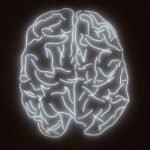Regarded as an acute form of seizures, generally not triggering an onset of severe convulsions, dissociative seizures may be relieved by implementing cognitive behavioral therapy to a patient’s treatment plan, according to new research released in Lancet Psychiatry.
The study, conducted by King’s College London, examined more than 350 patients with dissociative seizures from various areas in Europe, such as England, Scotland, and Wales. Cognitive-behavioral therapy was added to their treatment approach.
A follow-up was initiated one year and six months after patients were allocated to the treatments in the study.
Contributing factors that may increase the risk of dissociative seizures include highly prevalent severe stress-based or traumatic events, such as warfare, accidents, divorce, and physical or sexual trauma, according to prior studies.
In their examination of the patients, those who participated in sessions of cognitive-behavioral therapy had a longer period of consecutive dissociative seizure-free days in the previous 6 months, described their dissociative seizures as less bothersome, were less distressed, reported better health and fewer symptoms, and were more satisfied with their treatment at the end of the study.
“The CODES Trial is a landmark study for a condition which has, for too long, been ignored by health services,” the UK-based research team stated in a news release.
“The trial has encouraged participating neurologists, psychiatrists and psychotherapists across the UK to raise their standard of care for these patients.”
“The trial has set a new bar for evidence in this area, making it clear that there are thousands of new patients with this condition in the UK every year who we need to keep doing better for in terms of treatment and research in the future.”


